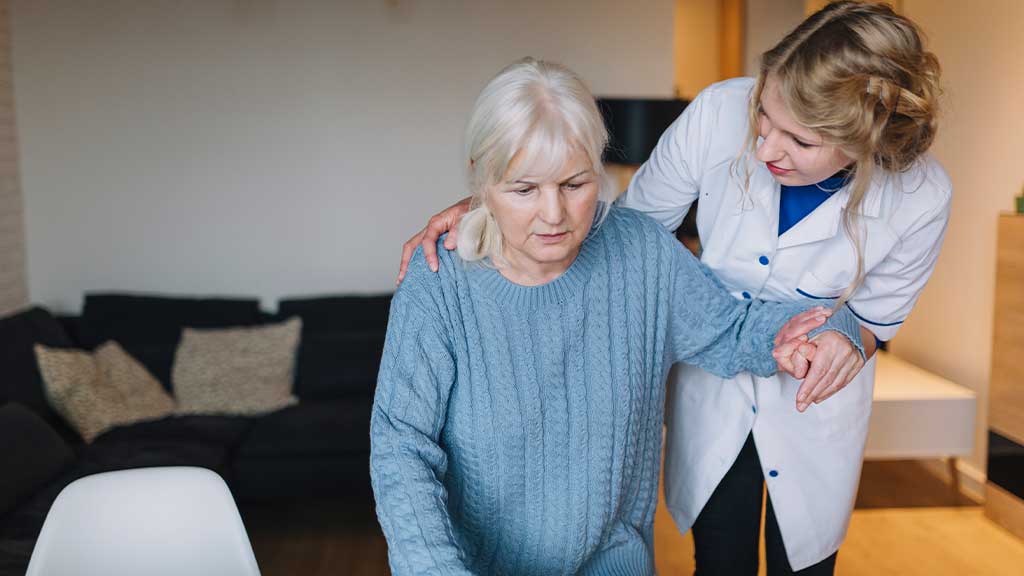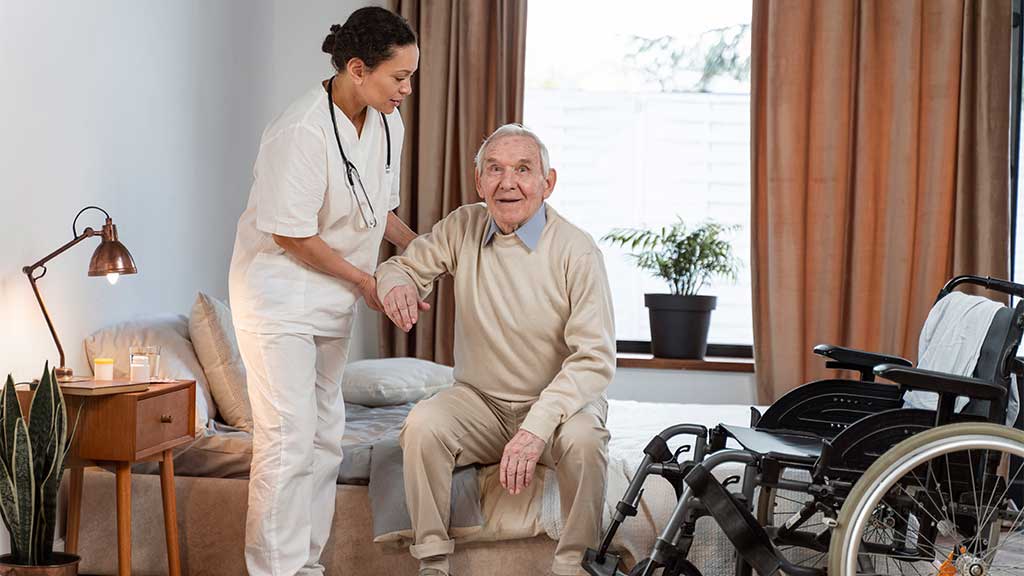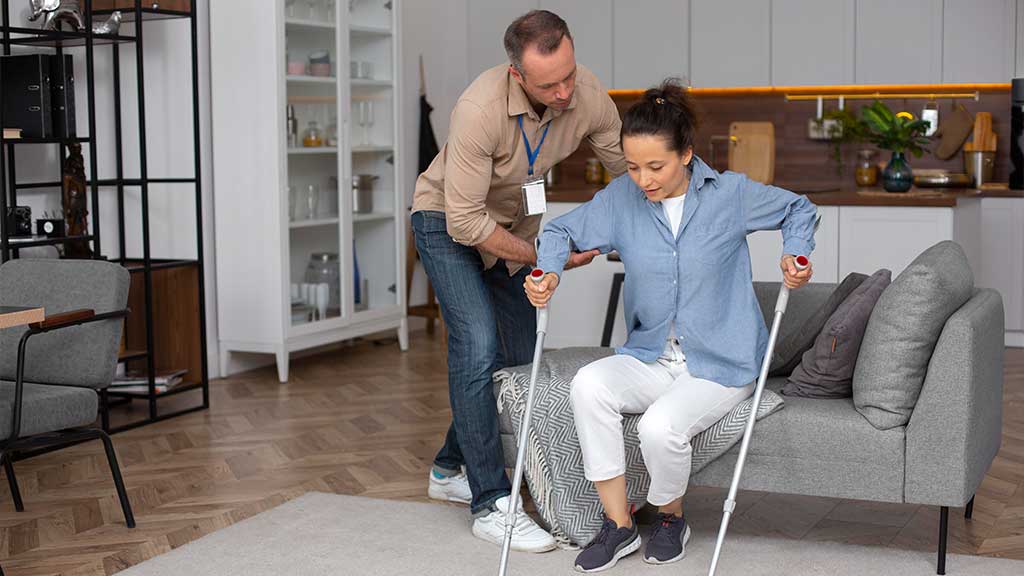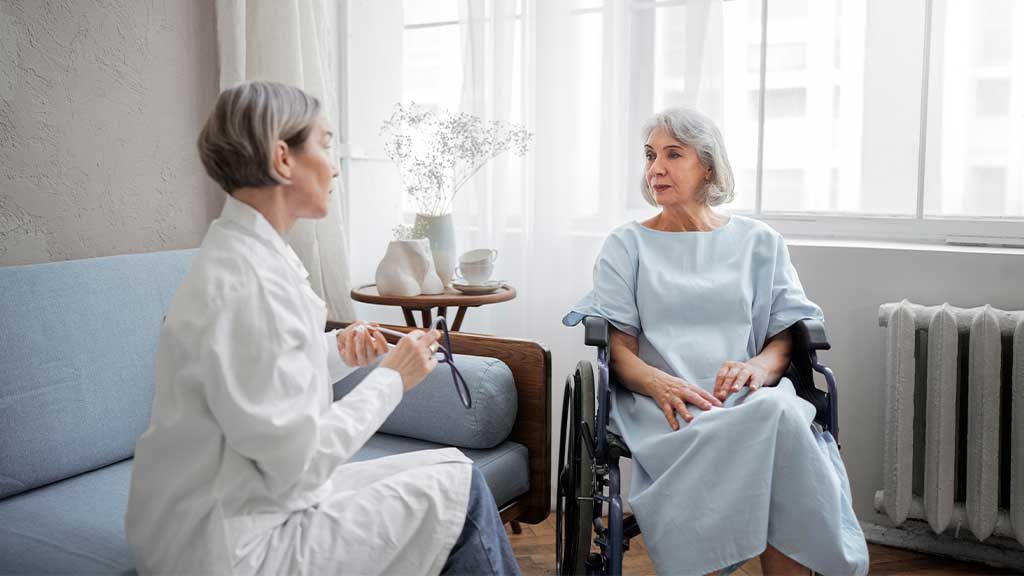Millions of elderly people struggle with balance problems. Balance problems in the elderly are not something new. With age, seniors experience lightheadedness or dizziness and require assistance in moving around.
The National Institute on Aging (NIA) explains that balance problems are quite common reasons why seniors turn to doctors for help. As per reports, nearly eight million adults each year report balance issues in which about one-third of adults are over 65 years of age.
Although the condition may seem minor, maintaining balance is a crucial component of maintaining your overall health. Good balance empowers seniors to control their bodies and allows them to move about confidently and freely.
Experiencing balance issues on the other hand can hinder one from carrying out their daily activities. This can in turn affect the quality of life and overall happiness. The issue can also result in falls, which can be debilitating for older adults. This guide explores what caregivers for the elderly can do to assist seniors in need.
Basic facts about balance problems
Having a good balance implies that different parts of the body are together to sustain everyday activities. Vision triggers balance centers in the inner ear and brain. The sensory nerves then send signals to the brain. The brain handles sensory signals and gives directions to the body. Based on these directions muscles and nerves respond to the brain’s messages. Any problem with any of these things can result in a person facing issues with their balance.
Lack of balance can hinder a person from carrying out their daily activities such as dressing, bathing, cooking, eating, or getting around the home. Falling due to balance issues can also result in injuries and some cases death.
The main cause of balance problems in seniors
Age-related balance issues are common in seniors, even in those in excellent health. Several conditions, including tight or injured joints, and more serious conditions including neurological disorders, can cause loss of balance. However, the most frequent cause is issues with the inner ears.

The inner ear’s vestibular system, sometimes known as the labyrinth, is responsible for balance. Labyrinthitis, an infection or inflammation of this system, results in vertigo, which induces feelings of spinning or dizziness. Labyrinthitis usually develops as a side effect of another condition, such as:
- Medication
- Viral infections
- Head injuries
- Upper respiratory infections
- Circulatory system problems such as low blood pressure or stroke
Signs of balance problems in seniors
Older adults who are battling balance issues may struggle to stand up without assistance or may stumble while walking. They might also experience other symptoms such as:
- Diarrhea
- Blurry vision
- Vertigo
- Confusion
- Panic
- Anxiety
- Nausea
- Blood pressure and heart rate fluctuations
- Feeling of lightheadedness
These symptoms could either be temporary or could last for an extended period. If the condition is untreated then it could also result in fatigue and depression. Hence, caregivers need to give special attention while managing balance disorders in elderly people.
Ways elderly people can cope with balance problems
The first and foremost thing to do is to understand what causes balance issues rather than ignoring it. seniors need to speak to their doctors about their ability to drive and lower their chances of falling while using stairs, bathroom, exercising, or performing their routine activities.
Sometimes balance issues can remain lifelong in seniors. In this case, it is essential to consult a vestibular rehabilitation therapist. They will help seniors develop a treatment plan so that they can maintain their quality of life.
How can caregivers help manage balance problems in the elderly?
Caregivers receive adequate training in assisting seniors battling balance issues. You know there are numerous reasons why the elderly lose balance. identifying the cause and following all possible measures can help you provide a better life to the person you are caring for.

Here are a few ways in which professional caregivers can support a senior who is struggling with balance.
Address health concerns that result in balance problems
Seniors who suffer from a variety of health ailments may experience issues with their balance, including:
- Hypertension
- Stroke
- Reduced vision
- Arthritis
- Lightheadedness
- Damage to the inner ear
- Damage to nerves
- Use of prescription drugs
Make balance exercises part of your routine
Although exercise cannot reverse balance problems in the elderly caused by inner ear issues, it can however promote minute changes in nerve signals and muscles that regulate balance. balance exercises can build nerve connections and build strength.
There are various balance exercises for seniors such as walking heel-to-toe, Tai Chi, standing on one leg, and others. Caregivers should assist seniors while they are practicing these exercises. Seniors with severe balance issues should never do it alone.
Support a healthy lifestyle
An inactive lifestyle can give rise to balance problems in older adults and several other health concerns. Caregivers can help elders regain their balance by supporting healthy changes in their lifestyle including:
- Cutting down alcohol
- Increased hydration levels
- Cutting down sodium intake
- Regulating blood pressure
- Weight loss
- Providing nutritious meals
- Encouraging indoor exercises for seniors
Install assistive devices
If your loved one or the person you care caring for is a senior with balance issues, then you can encourage them by using assistive devices such as
- Providing handles near showers and toilets
- Canes and walkers
- Using motorized chairs that lift to help older adults get on their feet easier
Remove obstacles in the home
If your parent or the elderly person you are caring for is experiencing balance loss, then you should make sure to remove any obstacles that could result in a fall. You can consider minor changes in elevation, place floor mats in front of sinks, doorway thresholds, and more.

You should start by going through the house and identifying potential hazards such as uneven porch steps, loose railings, or loose rugs. Move or remove objects present in the walkways especially those in high-traffic areas.
In summary
Balance problems in seniors can be a major issue because of heightened fall risk. You need to address these issues to prevent a potential injury. As a caregiver, you can encourage the senior person you are assisting to make healthy lifestyle choices that improve their quality of life and promote independence and overall well-being.
FAQs
What causes balance issues in older adults?
Loss of balance is quite common in seniors due to low bone density and poor physical strength. Several other conditions can also contribute to balance issues. This hinders them from performing day-to-day activities which makes them dependent on others.
Is it dangerous to ignore balance problems in the elderly?
Problems with balance can be dangerous since they increase the likelihood of falls. Balance problems can be brought on by several illnesses, including joint damage, other injuries, and cognitive impairments. To reduce the risk of injury, caregivers should actively address any mobility issues as soon as they arise.
What health conditions can result in balance issues?
Arthritis, anxiety, dehydration, inner ear problems, vision problems, numbness, nervous system issues such as stroke, dementia, joint and muscle problems, and taking certain medications can also result in balance issues.
How can balance issues be managed in older adults?
Taking medications properly, doing exercises, and making healthy lifestyle choices can certainly improve the quality of life in older adults. Caregivers can encourage seniors they are assisting by identifying potential risks in their surroundings and by providing them appropriate care they need while working with a healthcare practitioner can make life a lot better for seniors.
What are assistive devices for the elderly?
Using assistive technology can help you maintain your elderly loved one’s independence and safety. Assistive gadgets can help keep your loved one or elderly senior you are caring for secure, upright, and feeling empowered—even if the condition gets worse. Walkers, canes, handles attached to walls or furniture, and chairs that raise elderly people so they can stand up more easily are examples of assistive technology. Increased freedom and balance are made possible by these gadgets.
Can physiotherapy exercises help seniors with balance issues?
Regularly performing physical workouts that demand balance will strengthen the neural connections required to balance body movement. Standing on one leg, walking heel-to-toe, yoga, and tai-chi are some of the practices. Even with frequent physical exercise, some balance loss cannot be reversed if the cause is an inner ear problem. As a caregiver, make sure to speak to the concerned doctor or physiotherapist while assisting an elderly patient.


![Self-Care for Caregivers [Tips from Experts]](https://caregivercourses.net/wp-content/uploads/2024/07/Self-Care-for-Caregivers-Tips-from-Experts-300x169.jpg)


